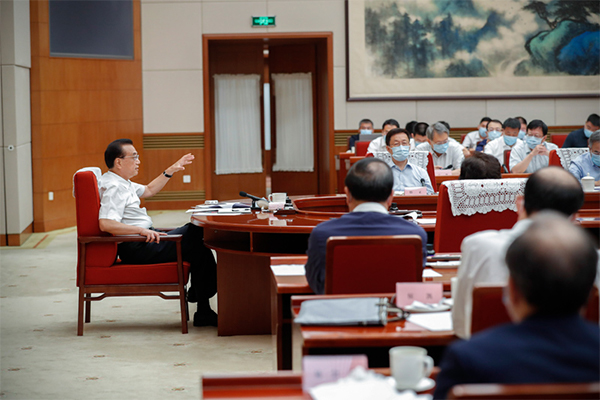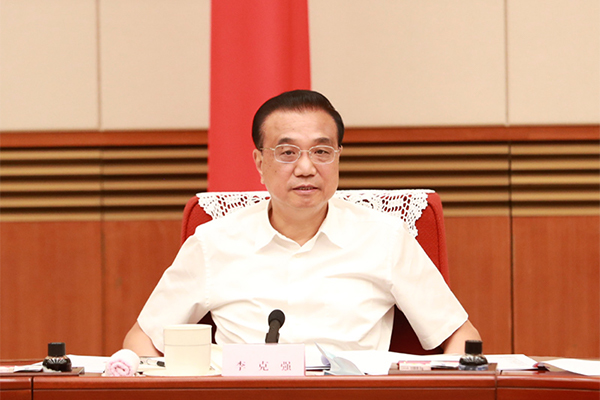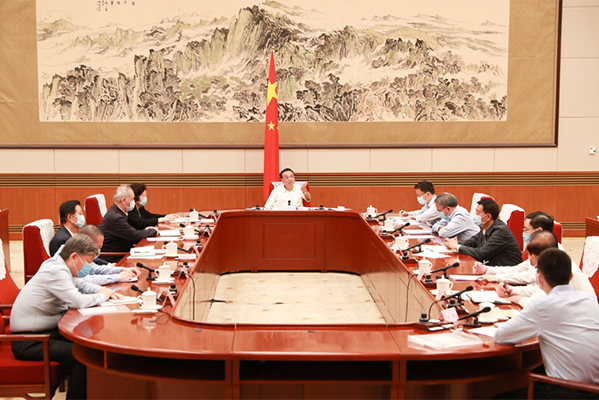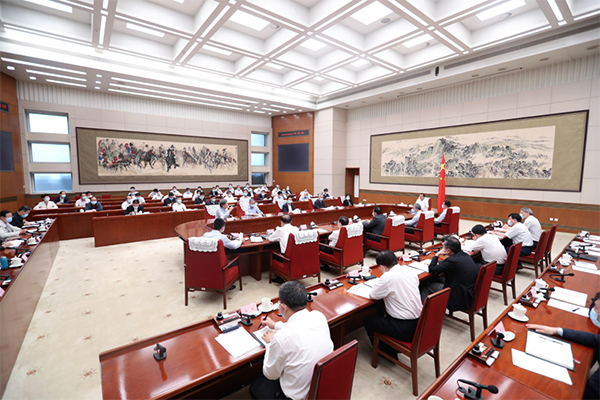Premier Li Keqiang, a member of the Standing Committee of the Political Bureau of the Communist Party of China (CPC) Central Committee, chaired a symposium on the economy on July 13.

At the symposium, experts and leaders from several enterprises talked about difficulties in economic development, and said the government's policies in tax reduction and inclusive financing are comprehensive and effective, playing a positive role in stabilizing business operation and employment.

Premier Li said that this year's novel coronavirus epidemic and world economic recession have exerted unprecedented impacts on China's economy.
Currently, he said, the COVID-19 epidemic has been effectively controlled in China and the economy is picking up strength as business and work are getting back on track.
This demonstrates the strong resilience and buffer space of China's economy, Premier Li said.
While calling for firm confidence in development, Premier Li stressed that the international environment is still facing growing uncertainties with mounting challenges, and China should be fully prepared.
The Premier called for efforts to carry out regular epidemic control measures, ensure stability in six fronts and security in six areas, fully implement the policies of a sizable scale to ease corporate burdens and stimulate market vitality.
According to the Premier, efforts also should be made to further reform and opening-up, and stabilize economic fundamentals and people's livelihoods to effectively prevent risks and meet annual economic and social development goals.

The Premier stressed timely implementation of macro policies amid safeguarding employment, people's livelihoods and market entities.
He also stressed fiscal, monetary and employment-oriented policies, and further fee cuts and tax reductions for enterprises.
Premier Li urged new fiscal funds to benefit businesses and people soon, as the mechanism has been established for the funds to go straight to primary levels in cities and counties this year.
Measures should be taken to increase the size of the credit loan supply and reduce the cost of financing, the Premier said.
He added that liquidity should be kept at a reasonable level to alleviate financing problems faced by micro, small, and medium-sized enterprises, and modern technology should be applied to developing inclusive finance.
Multiple measures should be taken to help graduates and migrant workers find jobs, and differentiated tax and financial support should be provided to labor-intensive enterprises to secure employment.

Premier Li stressed insisting on reform and opening-up to fully inspire the vitality of market entities and enhance development resilience.
He added that reforms to streamline administration, delegate powers and improve the business environment should be deepened to let the market play a decisive and bigger role in resources allocation and better fulfill the government’s role.
He also called for more efforts to improve innovation and the start-up climate, attract more talent, boost the industrial internet, create more new business models through the integrated development of large, medium and small enterprises, and to cultivate new strengths to participate in international competition and cooperation with more opening-up.
More reforms are needed to release consumption potential, such as expanding sales of agricultural products and domestic consumption of export-oriented products through online and offline integration, enriching the supply of quality commodities and guiding consumption upgrades, the Premier said.
Government investment should play a role to drive the participation of social capital, promote construction of major projects - especially new infrastructure and new urbanization initiatives and major projects - to increase employment with effective investment, he added.
Vice-Premier and member of the Standing Committee of the Political Bureau of the CPC Central Committee Han Zheng, Vice-Premiers Sun Chunlan, Hu Chunhua and Liu He, State Councilors Wang Yong and Xiao Jie, and He Lifeng, head of the National Development and Reform Commission, also attended the symposium.